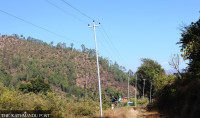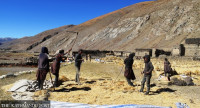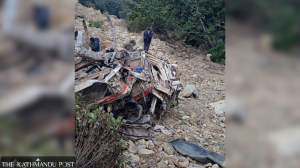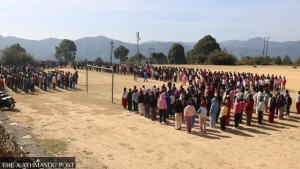Karnali Province
Early marriage rampant in a village in Mugu, despite being declared child marriage-free four years ago
Mothers as young as 16 struggle to build a comfortable life for themselves and their children.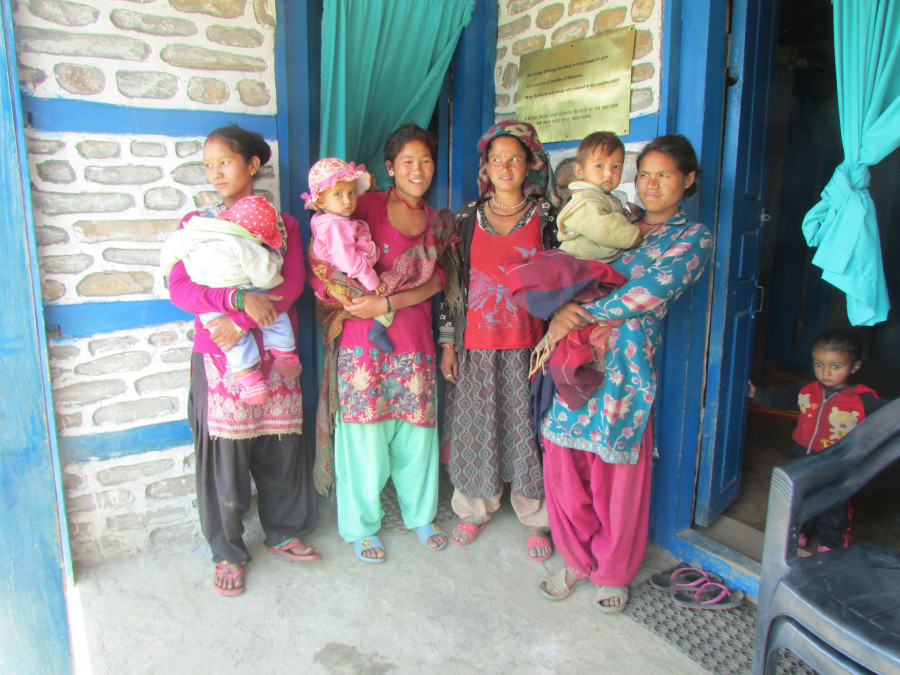
Raj Bahadur Shahi
Sixteen-year-old Kalpana Buda from Lamera village in Khatyad Rural Municipality, Mugu, is the mother of a 10-month-old boy. She failed the School Education Examination last year and her plan to take the exam this year did not materialise because her hands were full—with taking care of her baby and doing household chores.
“I feel sad for not being able to continue school,” said Kalpana. “Perhaps I married in haste.”
Kalpana’s neighbour Indira Buda, 20, eloped and got married when she was 13. Now she is a mother of two—a three-year-old girl and a nine-month-old boy.
Both the mothers lamented over tying the knot so early in life. “When we got married we didn’t realise how tough it would get,” said Indira.
The story of these two young women is playing out across the Mugu district in other households too, like many other remote parts of the country, where the practice of child marriage is rampant.
“We expected the practice would lose ground after the Khatyad Rural Municipality was declared child marriage-free. But sadly, that has done little to help the cause; in fact, early marriage seems to be on the rise,” said Jayananda Rawal, deputy chief of the Rural Municipality. Khatyad Rural Municipality (previously called Khamale VDC) was declared child marriage-free in 2015.
According to law, marriage before the age of 20, for both boys and girls, is a punishable offence.
“But contrary to what the law dictates, the practice is quite common in the district,” said registrar of the District Court, Rudra Prasad Aryal.
In Khatyad alone, the number of child brides exceeds 50, as per the data of the Rural Municipality Office. The practice of marrying off daughters once they take their grade 10 exams is rife, according to Aryal.
For Dil Bahadur Thapa, a local teacher, the practice is nothing new or surprising. “It has been happening for decades; it is a traditional practice,” he said. “It is not easy to do away with age-old practices, with a couple of laws and campaigns. People do not respond to that.”
Along with added financial strain, however, child marriage is giving these girls added health stress. Masari Buda, a woman health volunteer at the Khamale village, says child birth at such tender ages causes much pain to the body. “It’s sad to see young pregnant women go through long hours of labour pain before delivery,” Buda said. “We advise young couples to adopt family planning measures but that has had no effect at all.”
In the last three years, 54 women below 20 have given birth in Khamale Birthing Centre, as per the data of the centre.
“The physical pain of giving birth is squarely higher for under-age mothers,” said Bishnumaya Ghodasainee, an auxiliary nurse/midwife at the Centre. “In some extreme cases, the women suffer labour pain for up to three days before the baby is ready to be delivered. This puts the life of the mother and the child at risk. Early pregnancy is also detrimental to the newborn’s health. Most babies are born underweight and premature,” she added.
Many women who marry young find themselves falling into the cycle of frequent pregnancies and since most do not adopt family planning measures, they face the financial burden of raising a large family on a meagre income.
Dudhusheela Bhiyal, for instance, married when she was 15. Now she is 32 and a mother of seven children. Bhiyal’s husband works as a daily wage labourer and she laments that the money her husband earns is hardly enough for the family to sustain.
“We didn’t think much when we got pregnant and gave birth to so many children. My husband and I never went to school and nobody told us how difficult things could get,” Bhiyal said. “The produce we yield is enough for only two months; for the rest of the year, we work menial jobs for wages to feed our family.”
The reason the practice is still so rampant is because, while a few of these young couples elope, a good majority are married off by their parents, according to Ghodasainee.
Twenty two-year old Sangmu Lama, for instance, was married off by her parents when she was 18. “I had dreams of studying and being a social worker,” Lama said, “but the dreams were left to die when I was married young and couldn’t continue my studies.”
The practice of marrying off their children tends to continue among parents, as they believe that it would be hard to marry off their children once they cross 20, according to Tirtha Raj Shahi, an officer at the Khatyad Rural Municipality.
It is not that attempts haven’t been made to control the practice. A number of campaigns aiming to control the practice are still being practised, but they have been largely ineffective, according to Min Rawal, chairperson of Himali Rural Youth Society. “The practice has become rampant because despite several awareness campaigns, the families just do not want to change their traditional mindset,” Rawal said. “Child marriage has resulted in numerous health problems in the mothers as well as their offsprings, but the families refuse to blame early marriage for that.”
What do you think?
Dear reader, we’d like to hear from you. We regularly publish letters to the editor on contemporary issues or direct responses to something the Post has recently published. Please send your letters to [email protected] with "Letter to the Editor" in the subject line. Please include your name, location, and a contact address so one of our editors can reach out to you.




 11.12°C Kathmandu
11.12°C Kathmandu.jpg)




